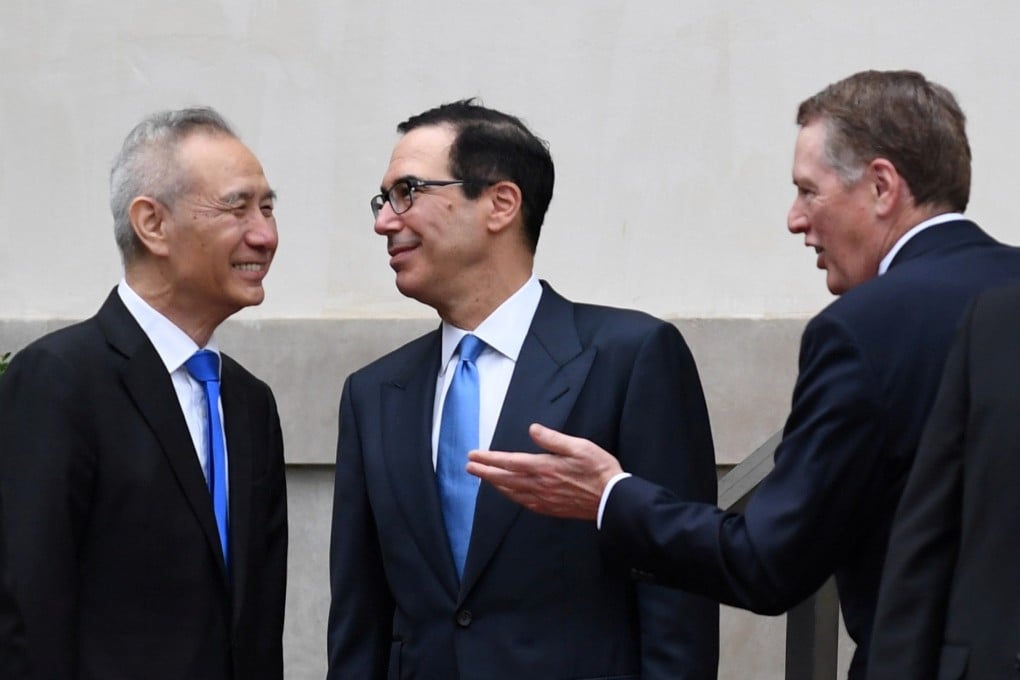China, Donald Trump keep expectations low ahead of trade talks in Shanghai
- Next round of negotiations – the first since early May – will be held at symbolic venue for bilateral relationship, the Xijiao State Guest Hotel
- Chinese state media does not expect any big breakthrough this week, and US president says Beijing could hold out on a deal until after 2020 election

Chinese state media is playing down expectations for any significant breakthrough from this week’s trade talks with the United States, while US President Donald Trump said Beijing could delay the deal until after the 2020 presidential election.
Washington and Beijing have confirmed that the next round of negotiations will be held in Shanghai on Tuesday and Wednesday – the first face-to-face meeting since talks on their year-long trade war collapsed in early May.
It will also be the first in-person meeting of top negotiators since Chinese President Xi Jinping and Trump agreed to resume trade talks at their summit in Osaka, Japan last month.
But on Friday, Trump told reporters he would not be surprised if China held out until after the US election to secure a trade deal. “I don’t think personally China would sign a deal if I had a 2 per cent chance of losing the election,” he said.

Vice-Premier Liu He and Commerce Minister Zhong Shan are expected to host US negotiators led by US trade representative Robert Lighthizer and Treasury Secretary Steven Mnuchin at the Xijiao State Guest Hotel in Shanghai – a deeply symbolic place in the two countries’ bilateral relationship.